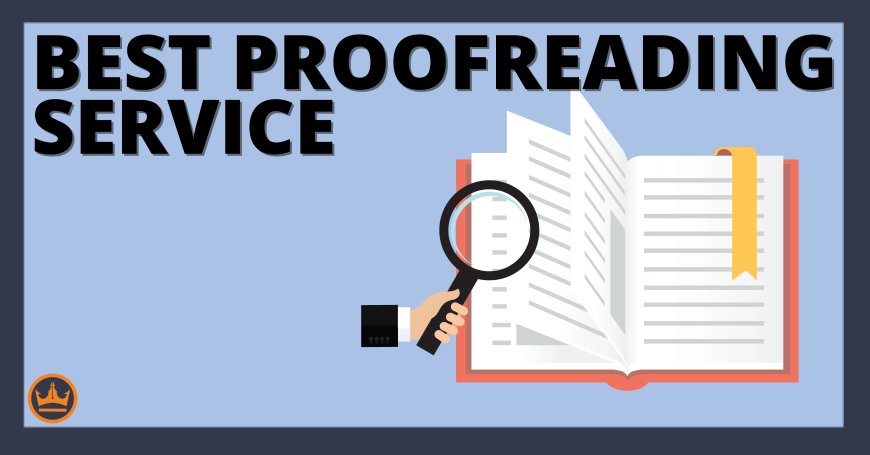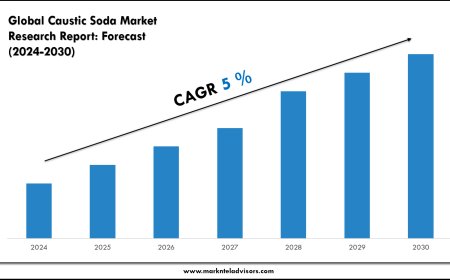Avoiding Predatory Journals: How Top Proofreading Services Ensure Compliance
How top proofreading services help researchers avoid predatory journals. Discover their ethical guidelines, plagiarism prevention, and quality assurance for compliant academic and scientific publications.

The imperative to publish in reputable academic journals is a cornerstone of scholarly career progression and the dissemination of credible knowledge. However, the burgeoning ecosystem of open-access publishing has, unfortunately, given rise to "predatory journals"entities that prioritize financial gain over rigorous peer review and ethical publishing practices. Submitting work to such journals can severely undermine a researcher's reputation, dilute the impact of their findings, and even jeopardize future career prospects.
Consequently, discerning authors must not only focus on the quality of their manuscript but also on the legitimacy of their target publication outlets. how top best proofreading services, specializing in professional thesis editing and scientific proofreading, play a critical role in helping researchers navigate this perilous terrain, ensuring their work is both pristine and published compliantly.
Understanding the Threat: What Are Predatory Journals?
Predatory journals are deceptive publications that masquerade as legitimate scholarly platforms. They often exploit the author-pays open-access model, charging Article Processing Charges (APCs) without providing the essential editorial, peer review, and dissemination services that characterize genuine academic publishing.
Defining Characteristics of Predatory Journals:
1. Lack of Rigorous Peer Review
They typically offer extremely rapid acceptance without substantive peer review, or only a superficial, templated review process.
2. Aggressive Solicitation
Researchers frequently receive unsolicited, often spam-like, emails with flattering invitations to publish or join editorial boards.
3. Misleading Metrics and Indexing Claims
They falsely claim high impact factors or indexing in reputable databases (e.g., Scopus, Web of Science, PubMed) which they have not legitimately achieved.
4. Lack of Transparency
Information about APCs, editorial boards (which may list researchers without their permission), and physical addresses is often vague, hidden, or non-existent.
5. Poor Website Quality
Their websites may feature numerous grammatical errors, unprofessional designs, or mimic the names of established journals.
6. Broad or Ill-Defined Scope
Journals may claim to publish across an impossibly wide range of disciplines, indicating a lack of focus.
The Consequences of Publishing in Predatory Journals
Publishing in these outlets can lead to significant damage. Your research may not be properly indexed or discoverable, it may lack credibility among peers, and institutions might not recognize such publications for promotion, tenure, or funding applications. The time and money invested become effectively wasted.
The Proactive Role of Top Proofreading Services
Leading proofreading and editing services have evolved beyond mere linguistic correction. They now incorporate ethical guidelines and due diligence processes to protect their clients from predatory publishing.
Adherence to Ethical Publishing Guidelines
Reputable services strictly adhere to international ethical guidelines for academic publication, such as those set by the Committee on Publication Ethics (COPE). This commitment extends to advising authors on best practices, ensuring the integrity of the research process, and safeguarding against misconduct.
Educating Authors on Predatory Practices
Top services proactively educate their clients about the dangers of predatory journals. They provide resources, checklists, and direct advice on how to identify red flags, empowering authors to make informed decisions about where to submit their manuscripts. This guidance is particularly crucial for early-career researchers or those less familiar with the nuances of scholarly publishing.
Screening for Journal Credibility (Upon Request/As Part of Service)
While direct journal selection is typically the author's responsibility, many best proofreading services offer preliminary checks or consultations regarding journal legitimacy. This might involve cross-referencing against reliable whitelists (like DOAJ for open access journals) or blacklists (like updated versions of Beall's List), and verifying indexing claims.
How Professional Editing Enhances Compliance and Credibility
The meticulous work of professional thesis editing and scientific proofreading directly contributes to compliance and enhances a manuscript's appeal to legitimate journals.
Language and Clarity as a Quality Indicator
Predatory journals often publish articles with significant language errors, reflecting their lack of genuine copyediting. Conversely, high-impact legitimate journals demand impeccable English. A best English proofreading service ensures the manuscript is grammatically correct, stylistically appropriate, and perfectly clear, making it immediately distinguishable from content found in predatory outlets. This linguistic polish signals professionalism and attention to detail.
Adherence to Journal-Specific Formatting and Style
Legitimate journals have stringent formatting and referencing guidelines. Editors specializing in scientific proofreading are adept at ensuring manuscripts comply with specific journal instructions, from citation styles (e.g., APA, MLA, Vancouver) to section headings and figure placements. This meticulous attention to detail not only saves the author time but also signals to the journal's editorial team that the submission is serious and prepared for rigorous review. Predatory journals often show little regard for such specific compliance.
Integrity of References and Citations
Accurate and consistent referencing is fundamental to academic integrity. Professional editors meticulously check all in-text citations against the reference list, identifying missing entries, incorrect formatting, or potential areas where better attribution is needed. This prevents accidental plagiarism, a common pitfall that predatory journals often overlook or ignore.
Structural and Logical Coherence
Beyond grammar, some proofreading services offer light editing that enhances the overall structure and logical flow of a manuscript. A well-organized and coherent paper is more likely to pass initial editorial screening at a reputable journal and receive positive feedback from peer reviewers, who prioritize clarity and logical argumentation.
Leveraging Expertise: When to Seek Professional Assistance
Knowing when and how to engage with best proofreading services is crucial for ensuring compliance and maximizing publication success.
Non-Native English Speakers
For authors whose first language is not English, best English proofreading services are virtually indispensable. They bridge the language gap, ensuring that complex scientific or academic ideas are communicated with precision and nuance, preventing misinterpretation by reviewers and readers.
Time Constraints and Volume of Work
Researchers often face immense pressure to publish while simultaneously managing teaching, research, and administrative duties. Outsourcing the detailed proofreading and editing to a professional service frees up valuable time, allowing authors to focus on their core research and intellectual contributions.
High-Stakes Submissions
For critical publications, such as a professional thesis editing or a high-impact journal article (especially those targeting Scopus-indexed journals), the investment in professional proofreading is a strategic decision. The enhanced quality and compliance significantly boost the chances of acceptance and recognition.
Final Compliance Check
Before final submission, a professional proofreader can act as a final "quality gatekeeper," catching any last-minute errors or inconsistencies that might detract from the manuscript's professionalism or raise compliance concerns.
Choosing Your Partner: A Due Diligence Checklist
Selecting the right proofreading service is as critical as selecting the right journal. Authors must perform due diligence.
Verify Expertise
Ensure the service employs editors with subject-matter expertise relevant to your field. For scientific proofreading, editors should ideally hold advanced degrees in scientific disciplines.
Review Ethical Policies
Look for explicit statements on their website regarding confidentiality, data security, plagiarism prevention, and their stance on AI data training. A transparent service will clearly outline its ethical commitments.
Check Testimonials and Reputation
Seek out reviews or testimonials from other academics. A strong reputation within the research community is a reliable indicator of quality and trustworthiness.
Inquire About Plagiarism Checks
Understand their specific process for plagiarism detection, including the software they use and how they provide feedback on similarity reports.
Examine Communication and Support
Assess their responsiveness and willingness to discuss your specific needs and concerns. Good communication is a hallmark of a professional service.
A Foundation of Trust for Scholarly Success
The threat of predatory journals represents a significant challenge to the integrity of global scholarship. However, by understanding the hallmarks of these deceptive entities and leveraging the expertise of top-tier best proofreading services, researchers can effectively safeguard their work and ensure its placement in legitimate, reputable journals.
These services, through meticulous professional thesis editing and rigorous scientific proofreading, not only polish the linguistic quality of manuscripts but also act as crucial allies in maintaining ethical compliance, preventing plagiarism, and ensuring the credibility of published research. In an increasingly complex publishing landscape, a strategic partnership with a reliable proofreading service becomes an indispensable investment in the long-term success and impact of a researcher's scholarly contributions.









































